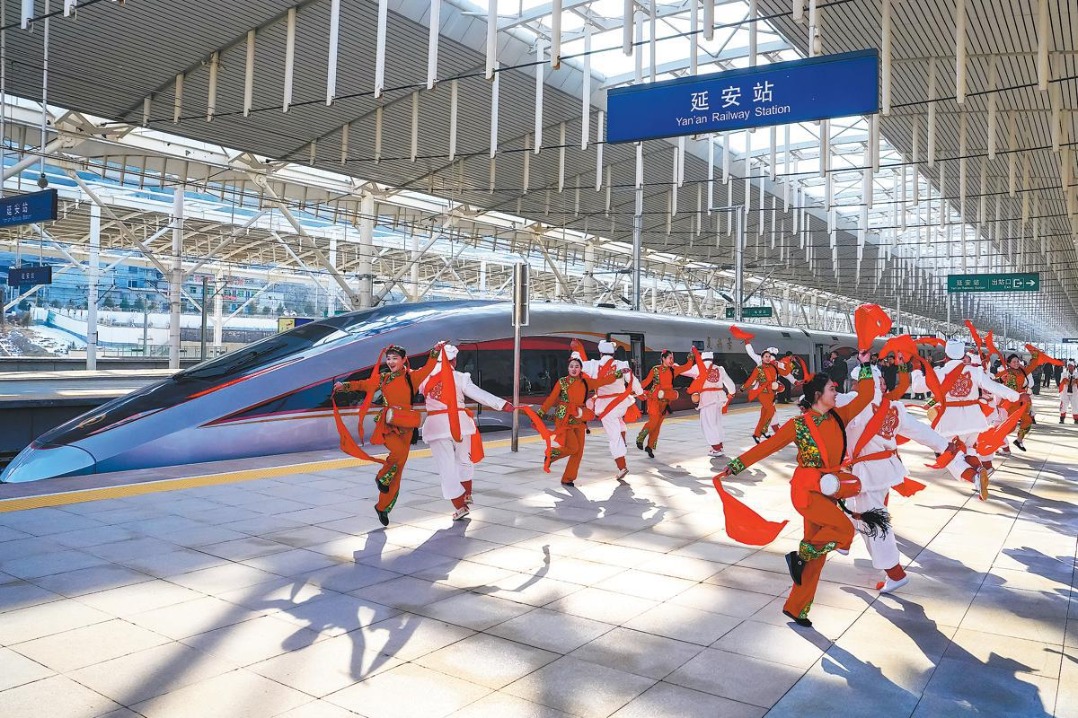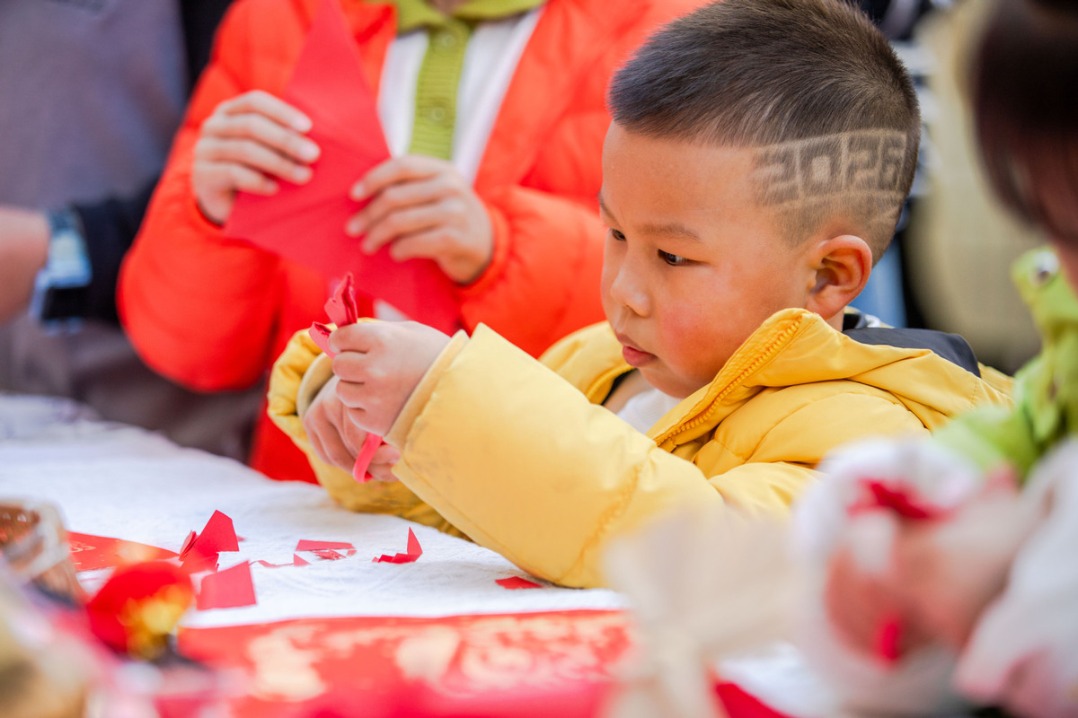County recalls historic role as testing ground for policy surveys

Xunwu county, Jiangxi province, played a crucial role in the history of the Communist Party of China, as Chairman Mao Zedong conducted an investigation into living standards there in the early part of the previous century.
Mao, then as a leader of Red Army, said his Xunwu report, completed in 1930, was the largest-scale social survey he conducted during the Party's early years.
It led him to declare "No survey, no right to speak", meaning that officials should investigate people's conditions before making policy decisions.
The report enabled CPC members to learn more about the situation in the urban areas so they could win over the local people, as most of them had been based in villages and were unfamiliar with cities. The report also displayed Mao's social survey methodology, which was later handed down as a core working practice in the Party.
In the report, Mao said that in matters concerning business, the uninitiated would inevitably make the wrong decisions when dealing with entrepreneurs or trying to win over the urban poor.
He said that although high-level officials realized that the work was very important, they were unable to propose specific working methods because they were unaware of the basic facts of city life.
"We have to work hard to study one place thoroughly and then study other places. Then it will be easy to understand the general situation," Mao said.
Located at the junction of the provinces of Jiangxi, Fujian and Guangdong, Xunwu was representative of all three to a certain extent, according to Mao.
As a result, he summoned 11 local people for a survey meeting, including teachers, farmers and business owners. They provided him with abundant materials.
Mao's report focused on transportation, business and land ownership. Nearly half of it focused on business. The chairman investigated how goods flowed in or out of Xunwu and how local handicraft enterprises lost sales and business due to the influx of commodities from overseas.
He listed 131 foreign-made goods including shoes, pens, hats and knives. He even listed all the colors of each material and said silk was the most popular for scarves among women in the county.
Mao also investigated each store and the living conditions and social relationships of their owners.
In the section related to land ownership, Mao divided the population in Xunwu's rural areas into 11 groups, of which farmers with debts accounted for about 70 percent. Meanwhile, the second-largest group — debt-free farmers whose harvests just about met their needs — was 18.25 percent.
He discovered that wealthy farmers exploited the poor in several ways, including through high rents and high interest, so that many impoverished people even had to sell their children to childless couples to repay their debts.
The investigation gave Mao reference points for subsequent decisions on land distribution policies.
In another article written in Xunwu, titled Against Book Worship, Mao said that many officers of the Red Army (the predecessor of the People's Liberation Army) used the wrong investigative methods, producing results that were often unsatisfactory and unrepresentative. As such, he urged Party members to fully understand the facts of each issue before making any policy decisions.
In the same article, he explained some of his investigative methods, saying that a core issue should be brought up and debated at a general discussion because relying on just one person's experience tended to lead the investigation in the wrong direction. Therefore, people from all walks of life including workers, farmers, soldiers, students and vagrants should attend meetings. For example, seniors knew more about history and the status quo, while younger people knew more about modern life, so both groups were needed.
Meanwhile, the host's ability to facilitate discussion was a crucial factor in deciding how many people should attend each meeting. In 1970, Liu Shushi, a local doctor who attended two days of the discussion, told Xunwu Literature, a local magazine, that about 50 people took part on the first day, but only half of them were selected to attend the second.
"Chairman Mao asked detailed questions about topics such as household registration, water conservation on farmland, textbooks at schools, land boundaries, customs, taxes and farmers' lives in the poor years. Mao let the attendees discuss matters and after everyone had reached agreement, he wrote notes," Liu recalled in the article.
Roger Thompson, a history professor at Western Washington University in the United States, translated the report and published it in 1993. In the English-language version of the book, called Report from Xunwu, he commented that the document was produced at an important moment in Mao's attempt to adapt Marxism to Chinese reality.
The investigative meeting and the insights that resulted would become an important part of the ongoing effort. Mao's technique not only served his revolutionary purpose but also directly challenged the methodology and perspectives of Western social scientists and their Chinese associates, he added.
- Communist Party expels former senior Dalian official
- Yunnan rose named after uncle 'who looks like a flower'
- Hunan becomes fourth city to host Chinese-built C919 jet
- Xi delivers 2026 New Year message
- PLA completes the Justice Mission 2025 exercise
- Rockets for Taiwan like 'porcupine in glass box': expert



































